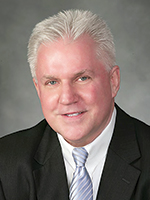Ethical Trap with Technology—“Failure to Supervise”
The Bencher—November/December 2016
By Kevin F. Brady, Esquire

 As the technological complexity of litigation grows, especially in digital discovery, the risk for attorney incompetence and malpractice rises. Many lawyers approach a case believing they can learn the law involved and competently handle the matter for their client. These same lawyers apply their standard discovery plan for every case, assuming that the risks associated with digital information are the same as with paper. More astute lawyers understand that the legal and technical issues associated with managing electronically stored information (ESI) in discovery involve greater challenges.
As the technological complexity of litigation grows, especially in digital discovery, the risk for attorney incompetence and malpractice rises. Many lawyers approach a case believing they can learn the law involved and competently handle the matter for their client. These same lawyers apply their standard discovery plan for every case, assuming that the risks associated with digital information are the same as with paper. More astute lawyers understand that the legal and technical issues associated with managing electronically stored information (ESI) in discovery involve greater challenges.
In J-M Manufacturing Co. v. McDermott Will & Emery, Case No. BC 462 832 (Cal. Sup. Ct. Jul. 28, 2011), the plaintiff filed a complaint for malpractice and breach of fiduciary duty against the law firm, McDermott, Will, & Emery, which represented J-M in a qui tam case. J-M complained that the law firm, which held itself as knowledgeable in the area of e-discovery, breached its “duty to render legal services competently” and breached its fiduciary duty by producing privileged documents to adverse parties, failing to supervise attorneys, and failing to supervise the vendors hired to perform the review and production of J-M’s documents. According to the plaintiff, the first set of documents produced by the law firm to the government on behalf of J-M included J-M’s privileged documents. The government subsequently asked J-M to complete another privilege review and re-submit a new production to the government. After hiring contract attorneys to assist with the second privilege review, the company again produced privileged documents. The government then refused to return the privileged documents, claiming that J-M had waived privilege.
In HM Electronics v. R.F. Technologies, the court found that sanctions were appropriate because the defendants’ attorneys failed to perform quality control or supervise the ESI vendor, resulting in more than 375,000 pages of ESI not being produced until after the close of discovery. See, HM Electronics v. R.F. Technologies, Inc., 2015 WL 4714908 *1 (S.D. Cal. 2015) and 2016 WL 1267385 *10 (S.D. Cal. 2016). In discussing the ethical obligations of counsel to supervise the work of subordinate lawyers, experts and outside vendors, the court highlighted a section of Formal Opinion No. 2015-193 issued by the State Bar of California Standing Committee on Professional Responsibility and Conduct on June 30, 2015:
[It is] an attorney’s obligation to supervise the work of the expert [outside vendor, a subordinate attorney or even a client]…which is a non-delegable duty belonging to the attorney who is counsel in the litigation, and who remains the one primarily answerable to the court. An attorney must maintain overall responsibility for the work of the expert he or she chooses, even if that expert is the client or someone employed by the client. The attorney must do so by remaining regularly engaged in the expert’s work, by educating everyone involved in the e-discovery workup about the legal issues in the case, the factual matters impacting discovery, including witnesses and key evidentiary issues, the obligations around discovery imposed by the law or by the court, and of any relevant risks associated with the e-discovery tasks at hand. The attorney should issue appropriate instructions and guidance and, ultimately, conduct appropriate tests until satisfied that the attorney is meeting his ethical obligations prior to releasing ESI.
HM Electronics v. R.F. Technologies, Inc., 2015 WL 4714908 *24 (S.D. Cal. 2015) (emphasis added).
Once an attorney selects another attorney, consultant, vendor, or expert to conduct or assist with e-discovery, the rules of professional conduct do not permit the hiring attorney to turn over the assignment and walk away. Attorneys have an ethical obligation under the ABA Model Rules of Professional Conduct 5.1 and Rule 5.3 to understand the actions the retained counsel or consultant is taking, because the hiring lawyer must supervise and take reasonable steps to ensure that the retained counsel or other specialist’s conduct is “compatible with the professional obligations of the lawyer.” As the J-M Manufacturing case demonstrates, where the work of the outside vendors and the contract attorneys both allegedly resulted in the production of privileged documents, hiring counsel must ensure that vendors take steps to maintain the confidences of the client and prevent disclosure of confidential information.
The obligation of counsel to supervise or oversee the work of subordinate lawyers, as well as non-attorney technical staff, is paramount in eDiscovery and non-delegable. The key to successful collaboration is knowledge in the law and the technology, significant practical experience, and demonstrated competence.
Kevin F. Brady, Esquire is of counsel in the firm of Redgrave LLP in Washington, DC. He is the past president of the Richard K. Herrmann Technology AIC in Wilmington, DE, and a former member of the American Inns of Court Board of Trustees.
© 2016 Kevin F. Brady, Esq. This article was originally published in the November/December 2016 issue of The Bencher, a bi-monthly publication of the American Inns of Court. This article, in full or in part, may not be copied, reprinted, distributed, or stored electronically in any form without the express written consent of the American Inns of Court.